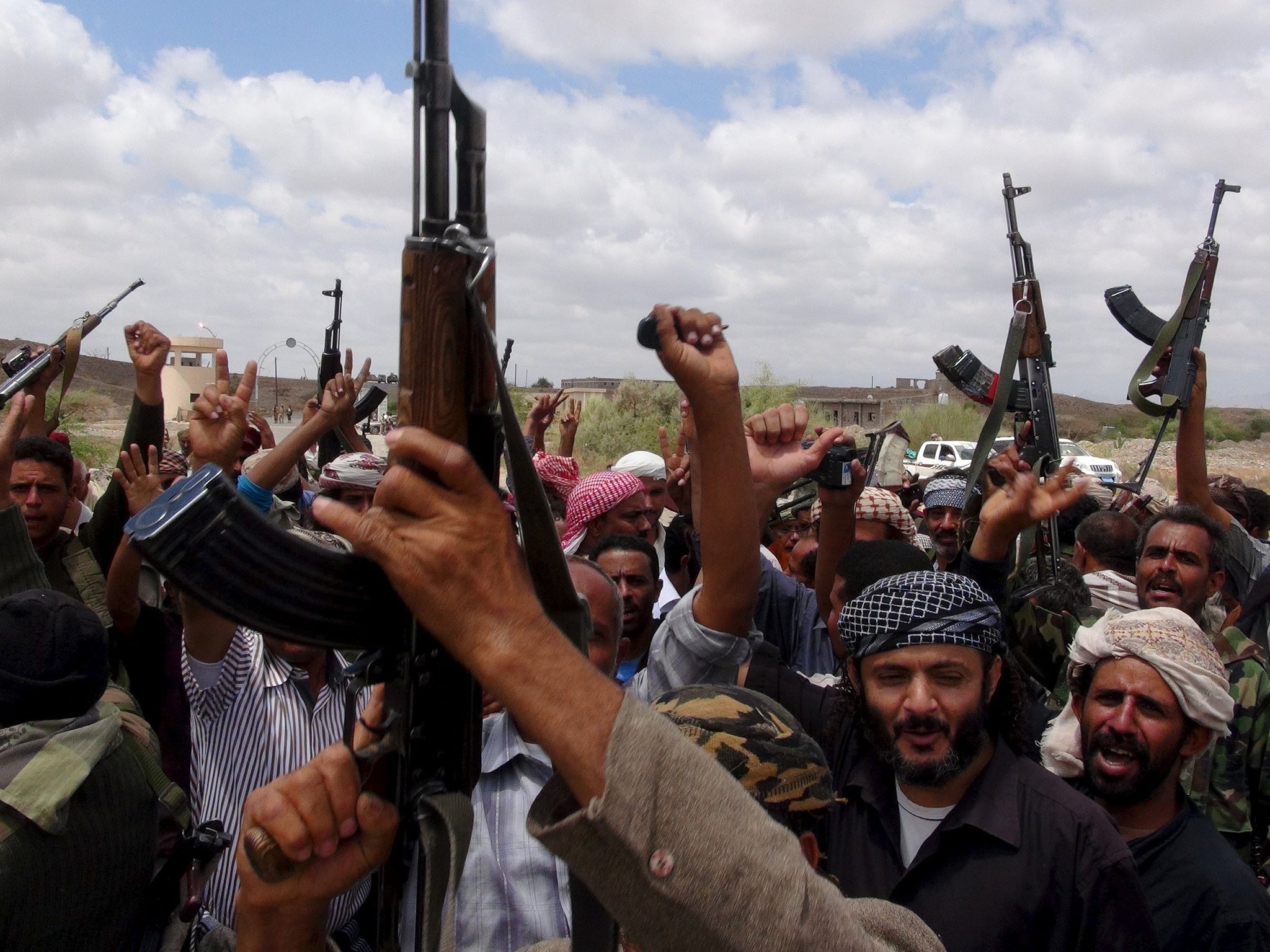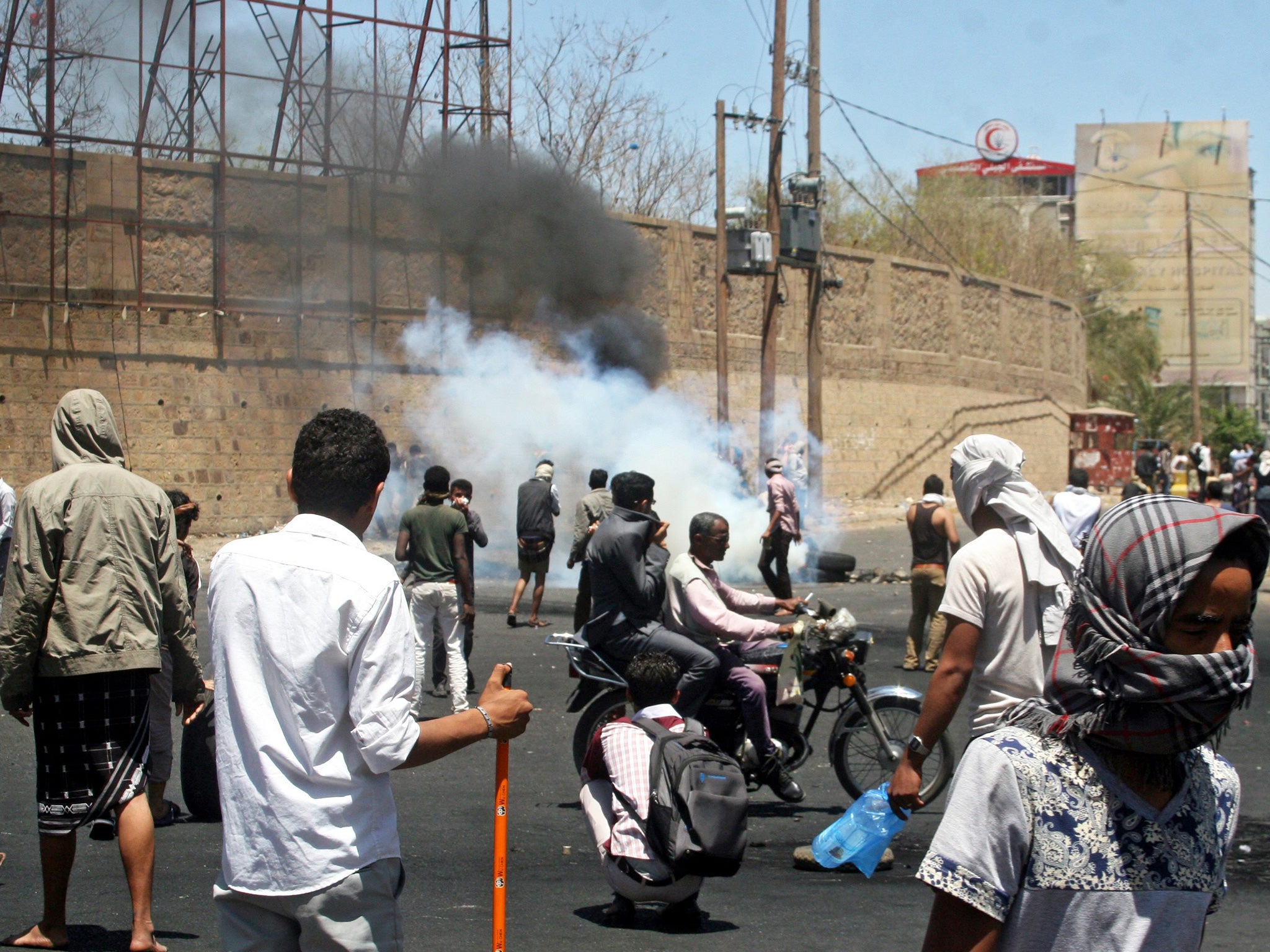Yemen set for civil war as Houthi rebels close in on Aden
If the remains of President Abd Rabbu Mansur Hadi's government lose Aden, the man will fall, plunging Yemen into civil war

Perched on an extinct volcano protruding into the Arabian Sea, Aden is perhaps the last refuge of Yemen’s embattled President, as the Houthi and al-Qaeda seize more power.
Driven out of the capital, Sanaa, by the Shia rebels who have taken over much of the north, President Abd Rabbu Mansur Hadi and the remains of his government have made Aden their provisional capital. If they lose Aden, the man the US had hoped would stabilise the chaotic nation and fight al-Qaeda will fall, plunging Yemen into civil war.
Yesterday, the Houthi, backed by supporters of the former President Ali Abdullah Saleh, seized Yemen’s third largest city, Taiz, and its airport, 85 miles to the north-west of Aden. Over the weekend, the US announced it was withdrawing its troops from the country. And last night the UN Security Council was due to hold an emergency meeting on Yemen.

Aden is expecting an assault, either from forces loyal to Mr Saleh, who has allied himself with the Houthi, or from al-Qaeda militants. Army and police forces loyal to Mr Hadi patrol Aden’s streets. Tanks guard roads leading to the city and children are largely staying away from school.
“There are fears that plans are under way for Aden to meet the same fate as Sanaa,” Nayef al-Bakry, Aden’s Deputy Governor, said. Referring to Mr Saleh and the Houthi rebels, he said: “They want to extend their reach on both the ground and on the coast.” Equally worrying for Aden residents was the al-Qaeda takeover late last week of a city on Aden’s doorstep, al-Houta, the capital of neighbouring Lahej province. Al-Qaeda fighters now have positions only 12 miles from Aden.
Mr Hadi fled Sanaa last month after escaping house arrest under the Houthis, who took over the city in September. Aden is the country’s economic hub and as long as Mr Hadi was here he could reasonably claim to still be president. Moreover, he chose Aden because as a southerner he has considerable support in the region. Aden has been at the centre of trade in the Indian Ocean for centuries. Its populace has long seen itself as more sophisticated and distinct from mountainous, tribal Sanaa.
There are billboards welcoming the President to the city and pro-Hadi graffiti on the walls. Since he arrived, Mr Hadi has issued calls for volunteers to join the army, a move his camp depicts as an attempt to build a military that stands above tribal, personal or regional loyalties. So far an estimated 20,000 men in Aden alone have volunteered.
“The protection of Aden is a task the President must prioritise,” Mr Hadi’s adviser, Sultan al-Atwany, said. “We need to build a new army, one that owes allegiance to the country and not anyone else.”
Aden has, since 2011, endured an increasing number of suicide bombings, assassinations and attacks on intelligence and military officials – mostly blamed on al-Qaeda. On Thursday, at least 300 inmates of Aden’s main jail – including several al-Qaeda fighters – were freed by forces loyal to Mr Saleh. AP
Join our commenting forum
Join thought-provoking conversations, follow other Independent readers and see their replies
Comments